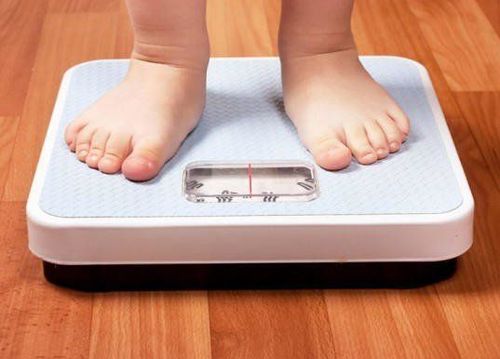Weight is always a key indicator that parents are extremely concerned about. How to ensure optimal child development, health, and activeness is the desire of all parents raising young children. So from a medical perspective, what is the ideal weight for a 14-month-old child?
1. Developmental characteristics of 14-month-old children
At 14 months, children have basically developed gross motor skills through activities such as walking, climbing stairs, moving around independently. Regarding fine motor skills, 14-month-olds can pick up objects and manipulate them with their little fingers.
At 14 months, children constantly try to explore everything around them, including drawers and cabinets, so parents should ensure that objects and cabinets are securely latched to avoid dangers to children.
14-month-old children are easily attracted to peers, shown by excitement when seeing other children even though they may not be ready for direct interaction. Over time, children's emotional expression increases as they interact more with other children or people around them. At this age, children gradually learn that their actions can cause certain reactions.
Regarding language, 14-month-old children typically imitate adult speech and repeat as much as possible. Even when they cannot speak clearly, they will still try to imitate words from parents or family members with babbling sounds.
The communication process of 14-month-old children is still limited to a few words and actions, so parents need to use their sensory skills to truly understand what the child is trying to say.

2. How much should a 14-month-old child weigh?
Standard weight for 14-month-old children according to WHO:
2.1. For boys
For 14-month-old boys, according to World Health Organization (WHO) standards, the average weight should be 10.1kg. Boys at 14 months are at risk of malnutrition when weighing under 9kg and are considered malnourished when weighing less than 8.2kg. On the other hand, 14-month-old boys are at risk of obesity when weighing over 11.3kg and are considered obese when exceeding 12.4kg.
2.2. For girls
For girls, the average weight at 14 months should be 9.4kg. 14-month-old girls are at risk of malnutrition when weighing under 8.3kg and are considered malnourished when weighing less than 7.5kg. Conversely, 14-month-old girls are at risk of obesity when weighing over 10.7kg and are considered obese when exceeding 11.9kg.
Additionally, 14-month-old children typically have 10 teeth and are in the early walking stage.
2.3. Is 10kg at 14 months a standard weight?
Evidently, a 14-month-old child weighing 10kg (regardless of gender) is an ideal weight at this age, as it's close to the WHO standard weight. Therefore, a 14-month-old weighing 10kg is neither at risk of malnutrition nor obesity.
However, parents should also monitor the child's height development: Boys should have an average height of 78cm, while girls should have an average height of 76.4cm

Recommended diet for 14-month-old children
At this age, children eat less compared to earlier ages, so their growth rate tends to slow down. 14-month-olds don't need as much food as younger ages, which can make it challenging for parents to ensure children receive all necessary nutrients for development.
From 14 to 24 months, children need about 500ml of milk daily (breast milk is best; if breast milk is insufficient, children can have formula milk and other dairy products like yogurt, cream, cheese); 3-4 porridge meals/day (total about 600ml/day).
A 14-month-old's diet should include all 4 food groups (about 120-150g white rice, 100-120g protein, egg every other day); 20-30g oil (fat); 50-100g vegetables; 200g ripe fruit.
Each meal should not exceed 30 minutes.
Mothers should increase breastfeeding to help increase milk supply; mothers should also eat a varied diet, drink plenty of water, and may supplement with an additional meal or 200ml formula milk before bedtime as breast milk production typically increases at night.
In conclusion, a weight of 10kg (regardless of gender) is ideal for a 14-month-old child. However, besides weight, parents should also monitor the child's height, as this is an important factor in evaluating child’s development.
Additionally, for optimal development of 14-month-olds, caregivers should establish a balanced diet with adequate nutrients and supplement with necessary micronutrients such as: Zinc, Selenium, Chromium, Vitamins B1 and B6, Ginger, Acerola fruit extract (vitamin C),... to improve taste, appetite, achieve standard height and weight, good immune system, enhance resistance to reduce illnesses and digestive issues.
Health Supplement LAMINKID I:
The product functions to supplement minerals and vitamins for the body. Supports digestion, enhances food absorption, helps children eat better. Supports improving children's immunity, helps reduce the risk of diseases due to poor immunity such as upper respiratory infections, flu.
Target users:
- Children with poor appetite, poor food absorption, weakness, malnutrition, developmental delays.
- Children with weak immunity, currently sick or recovering from illness, children prone to upper respiratory infections, flu.
Responsible for product quality:
- Elepharma Pharmaceutical Joint Stock Company
- No. 9, Truong Cong Giai Street, Group 17, Dich Vong Ward, Cau Giay District, Hanoi City, Vietnam
- (Tel) 1800 6091; (E) info.elepharma@gmail.com
- For more product information visit: https://i.vinmec.com/laminkid
- Register for child nutrition consultation at:
- https://i.vinmec.com/dangkytuvandinhduong













